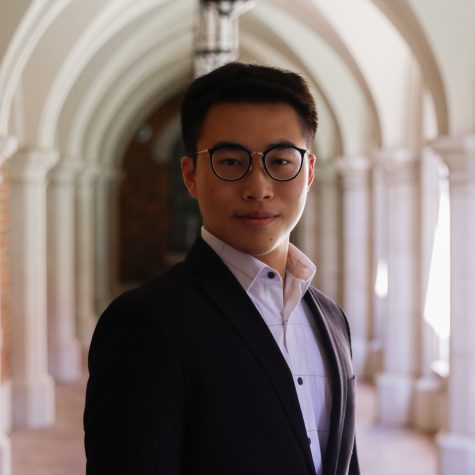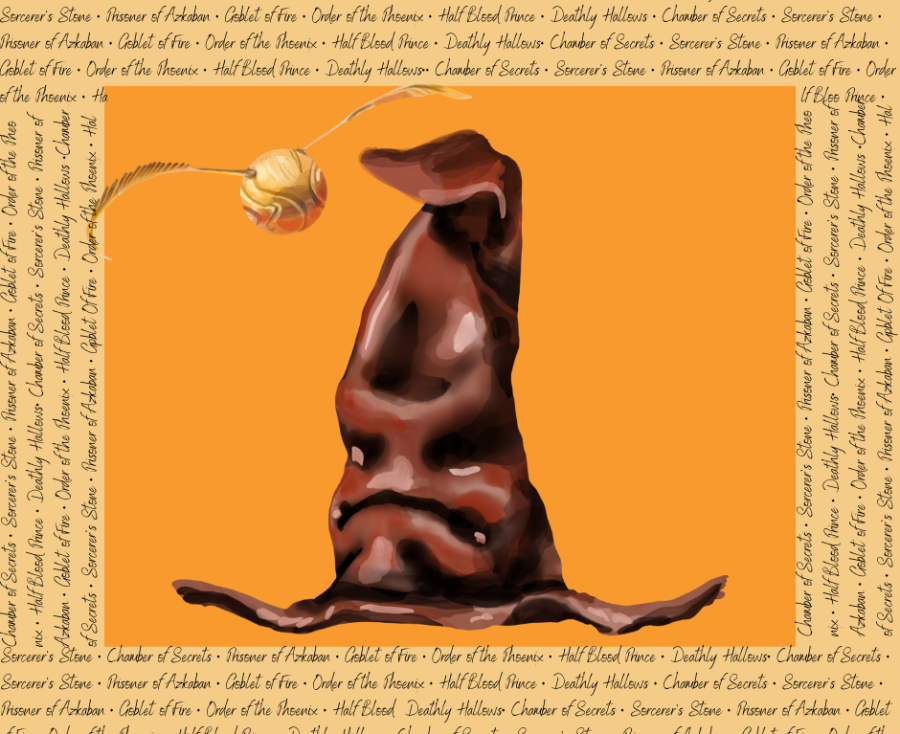Although setting books ablaze in the streets is no longer a common form of entertainment, institutions continue to suffocate voices of protest via censorship.
Ranging from the immolation of political philosophy books under Emperor Qin Shi Huang to the destruction of Harry Potter books by Polish priests, suppression of the written word is an age-old tactic to dissuade criticism, preserve normalcy and cement orthodoxy. My former elementary school placed restrictions on us reading Harry Potter because our librarian didn’t want us “young Christian children” growing up with “such nonsense.”
Years later, the destruction of literature continues to hit close to home as a college student. In recent years, students across the United States have witnessed an unnerving trend of censorship in student news publications. Student journalists have found themselves at odds with hawk-eyed administrators who are keen on exploiting the student newspaper as an echo chamber for the administrative voice. Although The Hustler is fortunate to be a relatively independent student news source untethered by university restraints, it saddens me that students from other universities face repercussions for reporting unfavorable elements of their respective institutions. And yes, the hampering of such written expression can be likened to the sadistic act of setting ablaze works of writing.
Universities have long been able to undermine their students’ right to free speech. In 2018, Loyola University Chicago implemented a policy that demanded all faculty and staff to obtain approval for any statements released to the media—including the campus newspaper. Such a tactic was clearly meant to prevent tarnishing the university’s reputation by establishing obstacles for students to pursue raw, candid statements from individuals that could potentially be critical of the university. Radford University in Virginia even attempted to seize over a thousand copies of their student newspaper, The Tartan, after it published a breaking story about a student who died in a jail cell after being arrested for alcohol intoxication. Such an attempt to stifle the news came after the community criticized the actions of university police for their handling of the matter.
The controversy that embroils the debate on independent student writing—both in high school and college—is not new. Over the course of four decades, federal and state-level courts have heard over sixty cases pertaining to censorship of student publications. In the 2007 U.S. Court of Appeals case Hosty v. Carter, the judges ruled that subsidized or financially-supported college publications can be subjected to censorship scrutiny as the public university sees fit. This is a ruling that is an extension of Hazelwood School District v. Kuhlmeier, which upheld the legality of censorship in public secondary schools.
In our lifetime, works of writing that went against the grain, masterpieces like “To Kill A Mockingbird” by Harper Lee and “Beloved” by Toni Morrison, were incessantly subjected to great scrutiny at both the high school and collegiate level due to their uncomfortable—but very real—discussion of topics of sexism, violence and critical race theory. Obstructing student media is similar to obstructing works of literature as both forms of censorship incubate rigid, narrow-minded ways of thinking.
The issue of censorship becomes heightened in a time when injustices and inequities are easily let slide without attention from the general public. Even when publications aren’t university-affiliated, they still must adhere to a strict communications protocol rather than pursuing more organic approaches when speaking to members of the administration.
Without independent publications completely free from administrative restraints, we are not creating the diverse intellectualism we desire.
To empower the student voice, we must vigilantly call for the full emancipation of all school newspapers from their administrative handlers. Currently, an overwhelming majority of college newspapers are at least partially funded by their institution, which renders them in part subordinate to the university’s will. According to Vanderbilt Student Communications, the independent non-profit that oversees the Hustler, the creation of an independent entity like VSC allowed the Hustler to obtain a current degree of autonomy. In fact, it was only by the “boundary-pushing student media, and [Vanderbilt] student journalists’ desire for greater autonomy to protect them from real or perceived threats to expression,” did the university file a charter of incorporation to establish Vanderbilt Student Communications. The Hustler receives funding via the student activities fee paid for by all undergraduate students as part of their tuition, which is then dispersed by Vanderbilt to VSC. Such an arrangement is vastly different from the minuscule number of student publications that are completely independent, in that those publications receive no funding from their school.
Unfortunately, very few student newspapers have such favorable circumstances. To tamper with the student voice is to deny a community the ability to report the truth and cover what matters. When institutions of higher education impose barriers like budget cuts or restrict access to administrators, students’ inability to write about what affects their lives forces them to simply become publicists. Covering up reality only creates more ignorance and insolence. Whether that is restricting literature that heavily expatiates on critical race theory or gender and sexuality or forbidding student publications from publishing potentially damaging or revealing information, all acts of censorship only create more harm than good.
In our era of abbreviations, fast facts and obstructions of the truth, we must take every opportunity to engage with the ideas around us, to challenge ourselves, each other and those in charge. We must report on what matters to us and not just what we are told to report. Awareness does not arise from being complacent.
Student writers mine for data, for ideas and for perspectives that shape the community we are proud to live in. From articles that lament the deteriorating state of dining on campus to establishing Asian American studies as a field of study, maintaining an open view of the world starts from the ground up—and that includes freeing student newspapers from constraints.
As a writer for The Vanderbilt Hustler, I am grateful for my relative independence from influence or pressure.
This independence gives me and my fellow writers a platform to share the most profound movements in our community, ranging from Dores Divest’s quest to divest fossil fuels to advocating for more all-gender bathrooms. Our freedom as writers is an indication of the Vanderbilt community’s commitment to amplify the student voice and highlight our diverse, unique experiences.
Our independence is even more critical now given the heavily censored time we are in, both politically, socially and academically. By amplifying the voices of student writers, we are making our mark in history one step at a time.
After all, there is a reason why The Hustler is called a “student newspaper.” We are run by students, for students.






